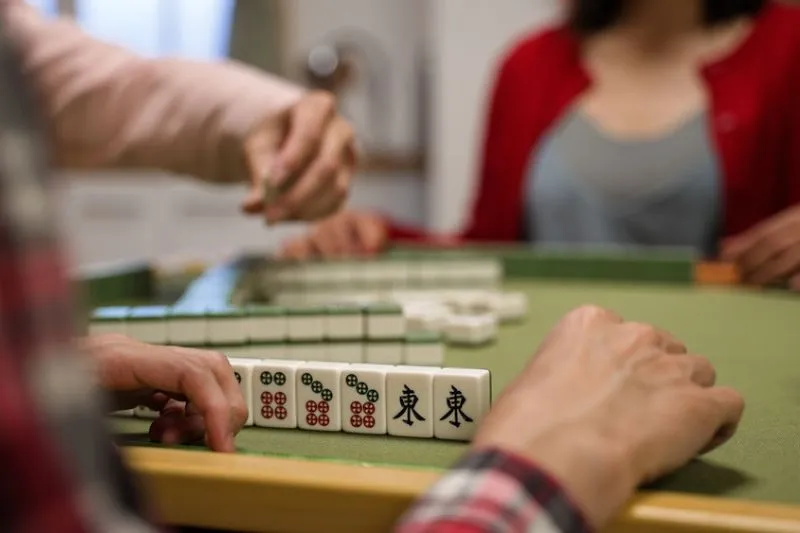Introduction to Mahjong
Mahjong, a game deeply rooted in Chinese culture, has transcended its traditional boundaries to become a globally cherished activity. The essence of Mahjong lies in its intricate tiles, representing various Chinese characters and symbols, and the strategic depth it offers its players. The traditional game version is usually played by four individuals, each striving to create a winning combination of tiles based on draw and discard patterns. The cognitive benefits of playing Mahjong are numerous: it necessitates an alert mind capable of quick reasoning, a solid memory to recall the flow of play, and the flexibility to adapt strategies as the game unfolds.
Finding Free Mahjong Games
In the present digital age, the game of Mahjong free games has become more accessible than ever before. With numerous virtual platforms, Mahjong enthusiasts can enjoy various game options without spending a penny. If you are an experienced player or a beginner, online platforms provide an excellent opportunity to improve your skills and play the game with people who share your interests. The introduction of free mobile applications has made Mahjong more accessible than ever before, allowing it to be played on various devices such as smartphones, tablets, and laptops. Users can now easily incorporate the game into their daily mental exercise routine, making it an ideal pastime for relaxing and unwinding.
Understanding Mahjong Variations
Mahjong’s rich history has given rise to numerous variations across the world, each with its unique set of rules and scoring systems. For instance, Japanese Riichi Mahjong, American Mahjong, and Chinese Official Mahjong, also known as the Competition Rules, present alternate ways to enjoy the game. Beginners might find the array of options daunting, but solitaire Mahjong, the single-player variant frequently found online, provides a more straightforward entry point. This version is often referred to as Mahjong Solitaire or Shanghai Solitaire and typically involves matching tiles to remove them from the board to clear all tiles. This variation still demands mental agility and pattern recognition, making it an excellent brain exercise.
Learning the Rules of Mahjong
Grasping the foundational rules of Mahjong is a stepping stone to mastering the game and reaping its cognitive benefits. In solitaire Mahjong, the game commences with tiles arranged in intricate patterns. Players must remove pairs of matching tiles, but only those that are “open”—meaning they can be slid out from the left or right without disturbing other tiles. At first glance, the task may seem simple, but it requires careful observation and strategic planning. As the game progresses, one can easily find themselves in an unsolvable situation. The goal is to clear the board as efficiently as possible, often within a set time limit, adding an extra challenge to the game.
Developing Winning Strategies
Cultivating effective strategies can elevate a player from a novice to a seasoned Mahjong practitioner. Strategic gameplay necessitates an analysis of the board to identify the most advantageous moves. Players should prioritize removing tiles that unveil the most covered tiles and avoid isolating any single tile. Memory serves as an invaluable tool within this context; remembering tile placements can prove to be the difference between victory and a stalemate. Strategies may also involve decision-making under pressure, especially when playing against the clock or aiming for high scores through combo moves.
Increasing the Challenge
To foster continual cognitive development, players should gradually increase the difficulty of the Mahjong games they engage in. It could involve selecting complex tile arrangements or pushing to beat previous high scores. Online platforms often provide varying levels of difficulty, and dedicated players can seek out communities of Mahjong lovers to participate in tournaments or multiplayer experiences. Furthermore, timed games provide an additional adrenaline rush, compelling players to make quick and calculated decisions, thereby sharpening their reflexes and cognitive speed.
Regular Practice for Lasting Benefits
Consistency is paramount when it comes to any form of mental training, and Mahjong is no exception. Regular engagement with the game solidifies the neural pathways involved in the particular cognitive processes that Mahjong stimulates. Over time, players may notice an enhanced capacity for memory retention, faster problem-solving skills, and improved strategizing abilities. Integrating Mahjong into one’s daily or weekly routine can be a part of a balanced lifestyle that promotes mental health and cognitive longevity.
Final Thoughts
Mahjong is entertaining and a mental workout that can improve brain function. By playing free Mahjong games available on platforms like Mahjong or through community apps, players can enjoy the cognitive benefits of this ancient game. While Mahjong can serve as a standalone cognitive enhancer, it is most effective when complemented with other healthy habits such as physical exercise, balanced nutrition, and adequate rest. As players continue to discover the minds sharp joy of Mahjong, they become part of a community that celebrates intellectual challenge and cultural tradition.
